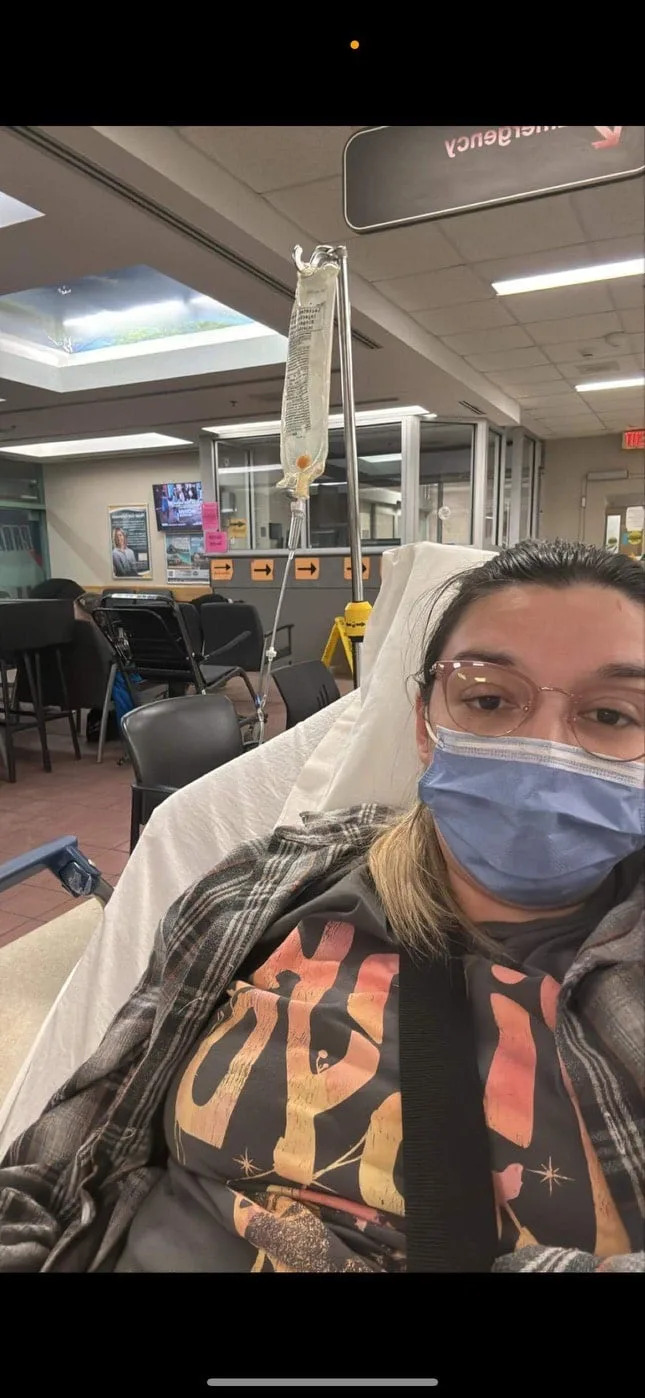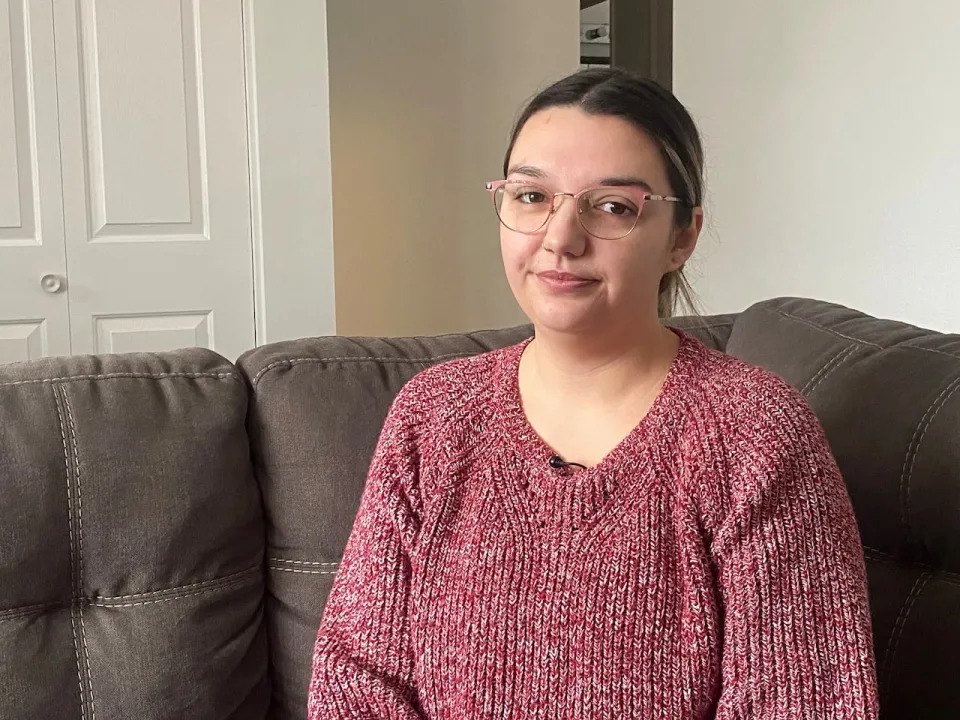Patient, nurses sound alarm after union says extreme overcrowding forced unprecedented call for help
CBC
Tue, February 6, 2024

Shaylyn Cowper says she waited seven hours to get treatment for her severe abdominal pain at St. Paul's Hospital in Saskatoon early Tuesday morning. She was placed in a bed that partially blocked the main entrance to the hospital's emergency room. (Sumbitted by Shaylyn Cowper - image credit)
A Saskatoon woman says she was placed in a hospital bed Tuesday morning that partially blocked the main entrance to the emergency room because there was no other space available.
The extreme overcrowding — which also resulted in another patient having a heart attack in the waiting room — forced staff to issue an unprecedented call for help known as the "stop the line" provision, according to the Saskatchewan Union of Nurses.
"I felt really ignored, very scared, really sad," Shaylyn Cowper said in an interview Tuesday afternoon after being discharged. "I've never really felt so exposed just being right in the entry way doors, sitting on a bed, so it was a terrible experience."
Cowper left her two children at home with her husband and drove herself to St. Paul's Hospital just after 6 p.m. Monday. She was vomiting repeatedly and the pain, which has forced her to make several other emergency hospital visits over the past year, had become unbearable.

Shaylyn Cowper spent several hours Tuesday morning in the emergency room of Saskatoon's St. Paul's Hopital. She says the extreme overcrowding forced staff to treat people in halls and take other extreme measures. (Jason Warick/CBC)
Cowper says she waited several hours to get a bed as the vomiting continued.
It wasn't a private room, she says, or a share room with curtains or even in the hallway: Those spaces were filled.
Instead, she says, she was put in a bed at the emergency room's front entrance in full view of everyone, and blocking access to the security desk and entrance.
As she waited, she decided to call 911. She told the dispatcher that her bed's location was a fire hazard. She says a fire marshal came early Tuesday morning.
She said she saw several patients turned away by security, and others in the waiting room got increasingly stressed.
"There were a lot of people crying," she said.
Eventually, a student training to be a paramedic came to insert her IV line and administer medication. She was treated shortly after and discharged just before 4 a.m.
"The nurses, I mean they did absolutely everything they could," Cowper said. "They just looked so defeated by the time I left. It was really disheartening,"
Union president Tracy Zambory says it was so crowded that staff activated the "stop the line" provision in the regulations, the first time the provision has been used at St. Paul's. It's a phrase taken from other industries when production is halted when working conditions are unsafe.
Zambory said it was "extremely dangerous and unmanageable" for staff and patients, but nurses obviously can't stop treating patients. In this case, she says, it triggered an immediate call to management to send reinforcements and to come help out themselves.
"We had no choice. Patients' lives are at risk," she said.
Government plan 'an abysmal failure'
A government plan created last year in the wake of severe overcrowding pledged there would be no more patients treated in halls by the end of January, Zambory says.
"This plan has been an abysmal failure," she said.
Saskatchewan Health Authority vice-president John Ash says they are working hard to add more staff and beds, but there are still pressures.
Staff members were correct to identify the unsafe situation at St. Paul's and ask for more help. he said, adding the union wants staff to know that if something is unsafe "action needs to be taken to correct it."
He says the situation was the result of several days of high volumes of admissions, which made it even more difficult to transfer patients out of the ER to other wards.
Ash says they are also creating more spaces to care for patients outside of hospitals whenever possible.
He said front line staff members "are incredibly dedicated professionals" and thanked them for their service.
No comments:
Post a Comment